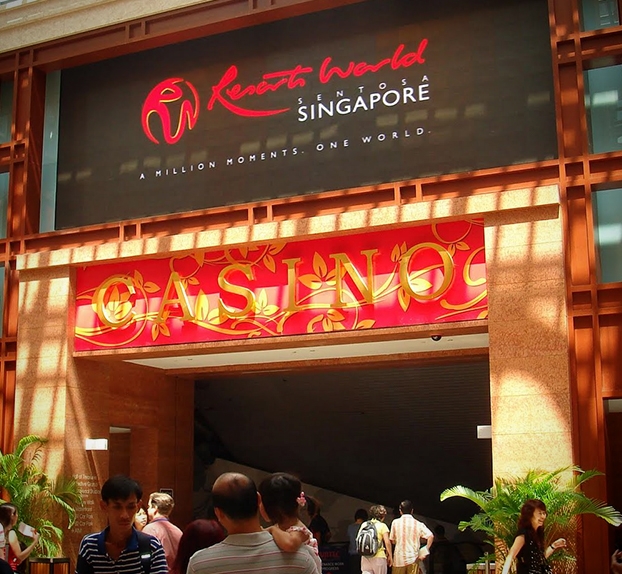Excerpts from analysts' report
Deutsche analysts: Jeffrey Ng and Pei-Yu Loo
 Indonesia's and Malaysia's weak currency, stock and property markets to have an impact on Genting Singapore. Photo: Internet Indonesia's and Malaysia's weak currency, stock and property markets to have an impact on Genting Singapore. Photo: InternetLittle value, growth or yields; initiating with Sell, TP of S$0.50 We expect Singapore's 2015 gross gaming revenue (GGR) to shrink 11% YoY to S$6.7bn, the second-lowest GGR since its opening in 2010. Accordingly, we estimate Genting Singapore's (GENS) FY15 profit will fall 50% YoY and see downside risk to consensus profit; our FY15-16E GENS profit is >30% below consensus. While GENS looks attractive on EV/EBITDA, it is 15% more expensive than Macau peers on FY16 PE. A potential lack of yield also has us initiating GENS with a non-consensus Sell rating and a target price of S$0.50. |
Hazy GGR prospect as IDR, MYR, KLCI and IDX continue to weaken
China's anti-corruption measures and Indonesia's and Malaysia's weak currency, stock and property markets underpin our bearish view on Singapore's GGR. YTD tourist arrivals have dropped 3% YoY and Orchard Road (shopping belt) rentals have fallen 6% YoY, further justifying our thesis. We forecast GENS to record declining EBITDA margins (down 6ppt YoY in FY15E) on continued receivables write-off and a shifted focus to premium mass (higher opex than mass). We have not assigned any value to Jeju, as it is still three years away from operation.
Few cost-saving options but we see possibility of cost escalation
GENS practises a natural attrition human resource policy. We believe a passive approach to cost (COGS) control spells little in the way of cost reduction prospects, but SG&A could spike on talent retention and acquisition to defend market share. We also expect advertising cost or non-gaming capex to rise ahead of the 2017 casino license renewal, due to the Casino Control Act amendments in 2013 that added one new criterion: to develop, maintain and promote the integrated resort as a compelling tourist destination.
PER is more suitable valuation method; dividend payout hike is biggest risk
EV/EBITDA is not suitable because of GENS' JV exposure to Jeju, different tax treatment against Macau peers, perpetual securities cost, and derivative exposures, which complicate EBITDA derivation. We conclude PE is a better fair-value approach. We assign 18x PE and a 10% discount to historical consensus PE, in line with the Macau average, to discount the mentioned risks. Improvements in GGR and dividend are the biggest risks to our thesis.





